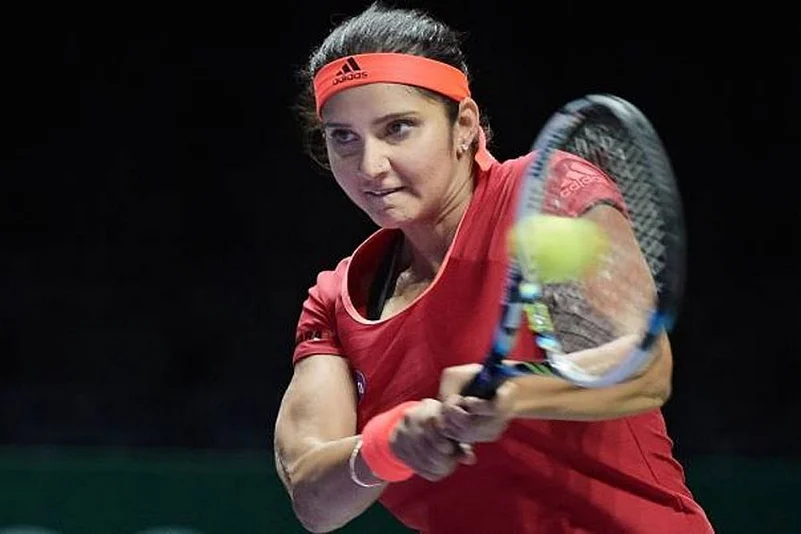India tennis star Sania Mirza has revealed her battle with depression. Giving details Sania said that she was devastated after pulling out of Beijing Olympics first round match after suffering a wrist injury and it took toll on her mental health. (More Sports News)
Sania was trailing when she pulled out of the match against Czech Republic’s Iveta Benesova.
In an interview on Youtube Saina said that she was in immense pain and now that she has grown, she has a fresh perspective to what had happened.
“At 34, it is a lot clearer in my mind but at 20, there were a lot of incidents where I honestly felt that I could not do this. One incident was when I had to pull out of my match at the Olympics. It was the 2008 Beijing Olympics and I had a very bad wrist injury. I went into depression for 3-4 months after that,” the Hyderabad-born player said.
Advertisement
Sania then detailed her struggle with depression and how she found it difficult to cope.
“I went into depression for 3-4 months, I remember crying for no reason. I would be absolutely fine and then I would burst into tears. I remember not coming out of my room to even eat a meal for over a month. I felt that I will never be able to play tennis ever again,” she said.
For record, Sania is a six-time Grand Slam winner and has won countless medals in many multi-sport events for the country.
“It's a lot for anybody at any age, but for a 20-year-old to read that you're finished or you are not going to be able to compete at Olympics ever again. My family helped me see the right direction and I got the help I needed. I happened to win two medals at the Commonwealth Games that happened in India," Sania added.
Advertisement
Sania has 14 medals, which include 6 gold, at Asian Games, Commonwealth Games, and Afro-Asian Games.




















